Electric Cars & Smart Tech: UAE Auto Industry in 2025
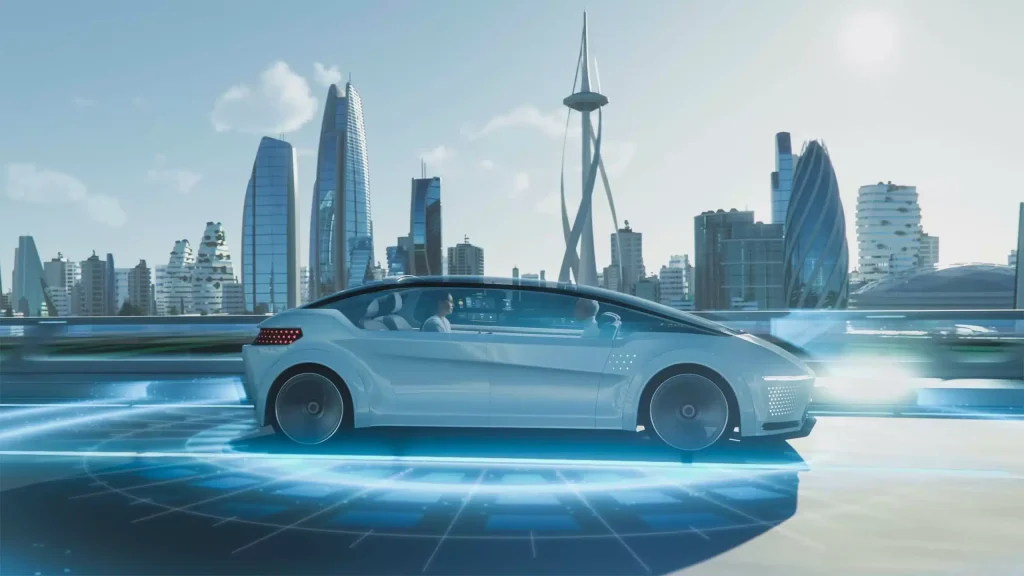
The United Arab Emirates (UAE) is rapidly transforming its automotive industry, driven by the adoption of electric vehicles (EVs), advanced technologies, and a robust digital ecosystem. Projections indicate a 10% growth rate by 2030, marking a new era for the sector. Accelerated Adoption of Electric and Hybrid Vehicles The UAE’s strong focus on sustainability has played a key role in driving the growth of EVs and hybrid cars. Government initiatives aim to convert 20% of government agency cars to EVs, targeting a fleet of 42,000 EVs by 2030. This shift is supported by expanding charging infrastructure and incentives like free parking and toll exemptions. The UAE is likely to see electric vehicles (EVs) make up 15% or more of all new passenger and light commercial vehicle sales by the year 2030. Integration of Advanced Automotive Technologies The UAE is investing in autonomous vehicles and AI-driven systems to enhance transportation. In the year 2023, the UAE automotive aftermarket market was valued at USD 6.8 billion. By the end of 2030, the same is expected to increase by USD 8.4 billion. These technologies offer the potential for better road safety and less traffic congestion. Expansion of the Automotive Aftermarket The demand for vehicle customization and advanced aftermarket parts is growing. The UAE’s automotive aftermarket industry, which was valued at USD 6.8 billion in 2023, is projected to grow to USD 8.4 billion by 2030. This growth is driven by consumers seeking personalized vehicles with modern technologies. Rise of Digital Platforms in Automotive Retail Digital transformation is reshaping the automotive retail landscape. Online sales platforms facilitated over 30,000 transactions in the last 23-24, reflecting a shift towards e-commerce. Consumers benefit from the convenience of browsing and purchasing vehicles and parts online, with access to competitive pricing and customer reviews.
Start an Agricultural Business in Mainland Dubai in 2025
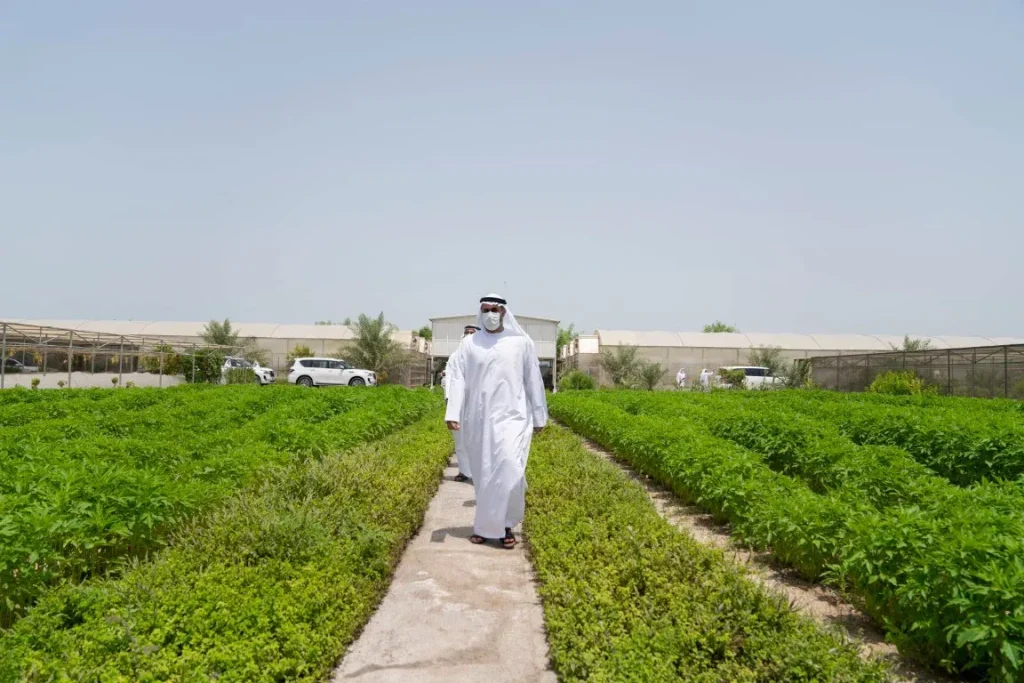
Dubai’s Department of Economic Development (DED) actively promotes agricultural business setup on the Dubai Mainland, offering streamlined procedures and incentives. As the UAE pushes for food security and sustainable development, Mainland agriculture ventures gain priority support from government bodies. Consequently, entrepreneurs can tap into a growing market while benefiting from a business-friendly environment. Types of Agriculture Licenses on Dubai Mainland The Department of Economic Development (DED) issues two primary license categories for agriculture: Professional License Activities include crop cultivation, plant nurseries, greenhouse farming, pest control, and post‑harvest services. Benefits are 100% foreign ownership, flexible locations, and permission for diverse agricultural services Commercial License Activities include trading seeds, ornamental plants, fertilizers, pesticides, agricultural machinery, and greenhouse equipment. Benefits are unrestricted trade with Mainland companies and broader activity scope compared to free zones. These license types let you choose the right scope whether you want to grow, process, or trade agricultural products on the Mainland. Key Benefits of Mainland Agriculture Licensing By setting up on the Mainland, you can: Trade Freely Across the UAE: Mainland licenses allow direct commerce with any UAE-registered company without intermediaries. Perform Multiple Activities: Combine farming, processing, and trading under one license to expand revenue streams. Access Prime Locations: Operate from anywhere in Dubai, from Al Awir to Al Warsan, to optimize logistics. Leverage Government Incentives: Enjoy DED’s streamlined approvals, reduced fees for strategic sectors, and potential grant eligibility. Thus, Mainland licensing offers unmatched flexibility and market reach for your agricultural venture. Step-by-Step Setup Process Follow these steps to launch your agricultural business on the Dubai Mainland: Select Your Activity Choose from DED’s approved agriculture activities list, such as growing of cereals & other crops or seeds trading. Reserve a Trade Name Submit three name options, ensuring compliance with naming guidelines. Apply for Initial Approval Obtain a No Objection Certificate (NOC) and activity approval from the DED. Lease Office or Farmland Secure a physical address whether a nursery plot, greenhouse facility, or office to meet DED requirements. Submit Documents & Fees Provide passport copies, MOA (for LLC), lease agreement, and pay licensing fees. Receive Your License Upon approval, DED issues your agriculture license. You can then apply for visas and commence operations. Post-Registration Compliance After registration, ensure ongoing compliance by: Environmental Reporting: Submit regular Environmental Impact Assessment (EIA) updates and follow water‑conservation guidelines. Quality Control: Adhere to UAE food‑safety standards and conduct periodic product testing. Labor Regulations: Maintain valid contracts, fair wages, and safe working conditions for all staff. Meeting these obligations safeguards your license and supports long-term growth. Ready to grow your agricultural business in Dubai Mainland? Serene simplifies every step from activity selection and license application to land leasing and compliance. Contact us today to turn your agriculture venture into a thriving reality!
Start a Profitable Agricultural Business in UAE – 2025 Guide
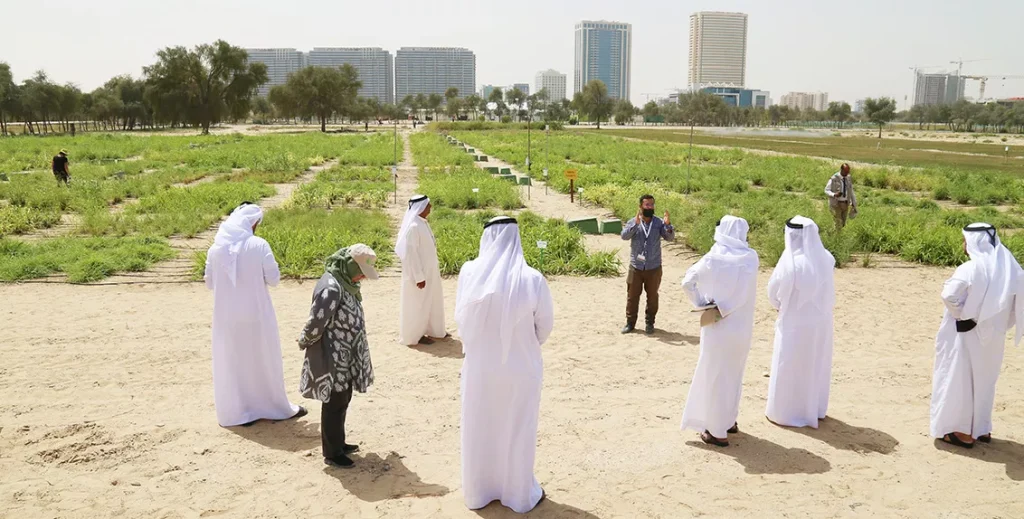
Are you ready to tap into one of the fastest-growing industries in the UAE? Starting an agricultural business in the UAE has never been more rewarding. With a push for food security, a favorable business climate, and extensive government support, the UAE is opening its doors to agricultural entrepreneurs. Why Choose Agriculture in the UAE? Although the UAE may seem unlikely for agriculture, it offers unmatched opportunities for innovation and growth. Here’s why you should invest in agriculture in the UAE: Favorable Climate: With sunshine year-round and advanced irrigation systems, UAE supports diverse crop production. Rising Local Demand: Food imports are high. The UAE is now prioritizing local agriculture and self-sufficiency. Government Support: Incentives, grants, and subsidies are available for new agricultural projects. Global Access: Use the UAE’s logistics and trade infrastructure to reach international markets easily. Tax Benefits: Free zones offer zero personal and corporate tax, boosting agricultural profitability. Clearly, the UAE is serious about agricultural innovation and sustainability. Let’s look at how you can enter the market. Step-by-Step Guide to Start Your Agricultural Business in the UAE Conduct Market Research First, understand the local demand and global opportunities. Identify high-demand products like organic vegetables, poultry, or hydroponics. Draft a Business Plan Create a comprehensive business plan. It should outline your market focus, funding strategy, and operational model. Choose a Legal Structure Decide whether to open your business in the UAE mainland or a free zone. Free zones offer 100% ownership and tax benefits. Register Your Business Register your company with authorities such as the Ministry of Climate Change and Environment. Get all the necessary permits to operate legally. Secure Land and Infrastructure Lease or acquire agricultural land in approved zones. Ensure availability of water, power, and basic farm infrastructure. Invest in Equipment and Technology To ensure high yields, invest in modern farming equipment; irrigation systems, greenhouses, and automation tools. Procure Seeds and Livestock Source certified seeds or livestock from trusted suppliers. High-quality inputs result in healthier crops and better productivity. Build a Skilled Team Hire experienced farm managers and trained workers. Agricultural expertise ensures day-to-day operations run smoothly.
Top 10 Profitable Trading Businesses to Start in the UAE – 2025 Guide
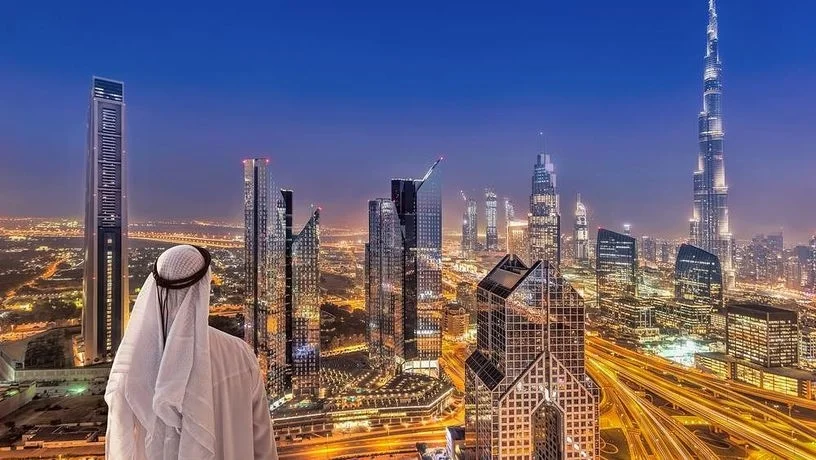
Looking to start a business in the UAE? Trading remains one of the most profitable business models in the region. With high demand, rising consumption, and the UAE’s strong economy, trading offers unmatched opportunities for local and international investors alike. Our team of expert consultants help aspiring entrepreneurs get their UAE trade license and launch their ventures smoothly. In this blog, we explore the top 10 trading businesses in the UAE that deliver high returns and long-term growth. Foodstuff and Beverages Trading Food remains a top priority across sectors, events, and everyday life. The UAE has seen a major rise in foodstuff and beverage trading due to increasing demand from social gatherings, hospitality businesses, and online food delivery services. With consistent demand, food exports and beverage imports drive high profit margins. It’s an ideal starting point if you’re looking for a scalable and sustainable business. Basic Steel Products Trading Steel plays a crucial role in powering both the construction and manufacturing industries in the UAE. Products like steel bars, rods, sheets, and pipes are in constant demand. This makes steel products trading a reliable and profitable industry. With strategic sourcing and smart logistics, small-to-mid scale businesses can succeed with moderate capital. Auto Spare Parts and Components Trading The UAE’s love for cars is well known. Hence, the demand for auto spare parts trading continues to grow. You can deal in parts like brake systems, engines, ignition coils, and gearboxes. The key to success here is quality sourcing and reliable supplier networks. With high vehicle turnover, this business offers long-term profits. Cement and Gypsum Trading Massive infrastructure projects are reshaping the UAE landscape. This is why cement and gypsum trading is booming. These materials are a must-have for building residential, commercial, and industrial properties. With smart partnerships and efficient delivery, this business yields stable returns and consistent growth. Security Control and Alarm Equipment Trading Security is a top concern for homes and businesses alike. The UAE enforces firm laws concerning safety systems. This opens a lucrative space for security equipment trading especially for alarms, CCTV systems, and access control. Low setup costs and high demand make this business easy to enter with significant growth potential. Construction Equipment and Machinery Trading The UAE’s construction industry never sleeps. That’s why construction equipment trading from mixers to cranes is always in demand. If you can secure supplier relationships and offer maintenance support, this trading business can grow fast with large B2B clients. Office Furniture Trading With businesses expanding, there’s a constant need for office furniture trading chairs, tables, reception desks, and workstations. It’s a low-risk, high-reward industry. Margins are strong, especially when dealing with premium or custom-built options. This is ideal for first-time investors. Pipes and Fittings Trading The demand for quality pipes and fittings is rising due to expanding urban infrastructure. These are essential for plumbing, irrigation, and sanitation. This sector needs low initial investment. If managed well, it can yield a fast turnover and strong profits. Firefighting and Safety Equipment Trading Fire safety systems are required in nearly every building by UAE regulatory authorities, making the trade of firefighting equipment essential. This includes fire alarms, extinguishers, smoke detectors, and sprinkler systems. Since it’s a compliance-driven sector, growth is almost guaranteed. Battery Trading The rise of electric cars, gadgets, and portable devices is fueling battery trading in the UAE. There’s growing demand for batteries like Lithium-Ion, Nickel Cadmium, and others. This business requires a low setup and has a wide B2B and B2C market. On top of that, the constant demand ensures it’s a profitable business all year long. Ready to Launch Your Trading Business? At Serene, we help you register your company, get the right trade license, and handle all documentation. Whether you want to start your company in a free zone, mainland, or offshore, we make the process smooth. Let us handle the setup, so you can focus on growing your business.
How to Get a Trade License in Dubai – 2025 Guide
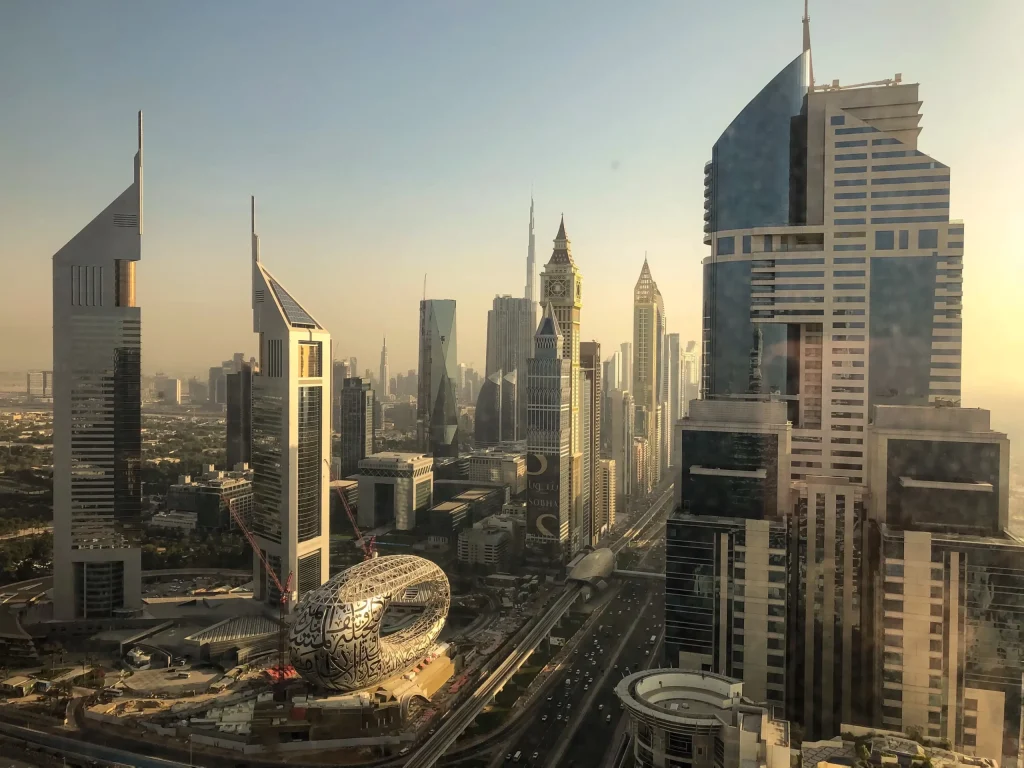
Thanks to its ideal location and pro-business policies, Dubai has become a hotspot for global trade. Its thriving economy continues to attract ambitious entrepreneurs from all over the world. Thinking about starting a business in Dubai? One of the first things you’ll need to sort out is getting your Trade License, it’s a key part of the setup process. This guide outlines the essentials of acquiring a Trade License, its types, process and the benefits it offers. What is a Dubai Trade License? A Trade License in Dubai gives you the official go-ahead to run your business legally and carry out specific activities in the emirate. Issued by the Department of Economic Development (DED) or relevant free zone authorities, this license is mandatory for operating a business in Dubai. Depending on your business activities, you may opt for a General Trading License, allowing engagement in multiple activities simultaneously. Types of Trade Licenses in Dubai Depending on what your business does, Dubai has different types of Trade Licenses to match your activities: Commercial License: If your business revolves around buying, selling, or distributing products, this type of license is the go-to choice for getting started in Dubai’s vibrant trading scene. Professional License: For service-oriented businesses such as consultancy firms, law firms, and medical practices. Industrial License: Required for businesses engaged in manufacturing or industrial activities. Tourism License: For businesses operating in the tourism and travel sector, including travel agencies and tour operators. Freelance Permit: Designed for individual professionals conducting business activities on a freelance basis. E-Commerce License: For businesses engaged in online retail and e-commerce activities. Branch Office License: Allows foreign companies to open a branch office in Dubai to conduct business activities related to the parent company. Each license type has specific requirements, including paperwork, company structure, and office space. Mainland vs. Free Zone vs. Offshore Licenses Businesses in Dubai can operate under three main licensing options: Mainland, Free Zone, and Offshore. Each has distinct characteristics, benefits, and limitations: Mainland License: Operate anywhere in the UAE Ownership: Requires a local UAE-national sponsor (51%), although certain sectors allow 100% foreign ownership You’ll have the flexibility to do business freely across the UAE’s local market. Eligible for government contracts Subject to UAE law Free Zone License: Operate within specific free zones 100% foreign ownership Ideal for import/export and international business Tax benefits including no import/export duties in the free zone Need a local distributor to sell in UAE mainland Offshore License: Used for international business, holding assets, or IP Not allowed to trade inside the UAE Privacy in ownership and low regulatory requirements Ideal for tax optimization and global business expansion Choosing the right license depends on your business objectives, ownership structure, and planned activities. It’s a smart move to talk things through with legal and business experts before making any big decisions. Advantages of Holding a Dubai Trade License Acquiring a Dubai Trade License offers numerous benefits: Strategic Location: Gateway to Europe, Asia, and Africa Tax Efficiency: Low or zero corporate and income tax Ownership: 100% Foreign Ownership (in many free zones) Business Credibility: Adds legitimacy to your enterprise Free Zones Access: Access to Free Zones with customs exemptions and full profit repatriation Global Talent Pool: Diverse, multilingual, and skilled workforce Ease of Setup: Fast-tracked registration and approvals Currency Flexibility: No foreign exchange restrictions Government Support: Initiatives and incentives to boost entrepreneurship Digital Integration: Online portals and smart services streamline renewals and updates How to Get a Trade License in Dubai Here’s a quick overview of the process: Choose Business Activity: Define your commercial, industrial, or professional activity. Select Jurisdiction: Decide between Mainland, Free Zone, or Offshore. Register Your Trade Name: Submit a unique business name for approval. Apply for Initial Approval: Start by getting initial approval from the Department of Economic Development (DED) or the authority that oversees your business type. It’s the first green light you’ll need before moving forward. Lease Office Space: Obtain an Ejari (tenancy contract) if applicable. Submit Documents: Include passports, application forms, MOA, etc. Receive Your License: Once everything’s in place and approved, you’ll get your official Dubai Trade License, your golden ticket to start operating legally in the city! The entire process typically takes 1 to 4 weeks, depending on your business type and setup. Final Thoughts Getting your Trade License in Dubai is the first big step toward launching a legitimate and thriving business in one of the world’s most dynamic markets. With the right guidance and proper documentation, you can quickly tap into one of the world’s most dynamic economies. No matter if you’re launching a startup, running a solo consultancy, or expanding a global company, Dubai’s got licensing options that adapt to your needs and support your growth every step of the way.
Start an Import-Export Business in Dubai – 2025 Guide
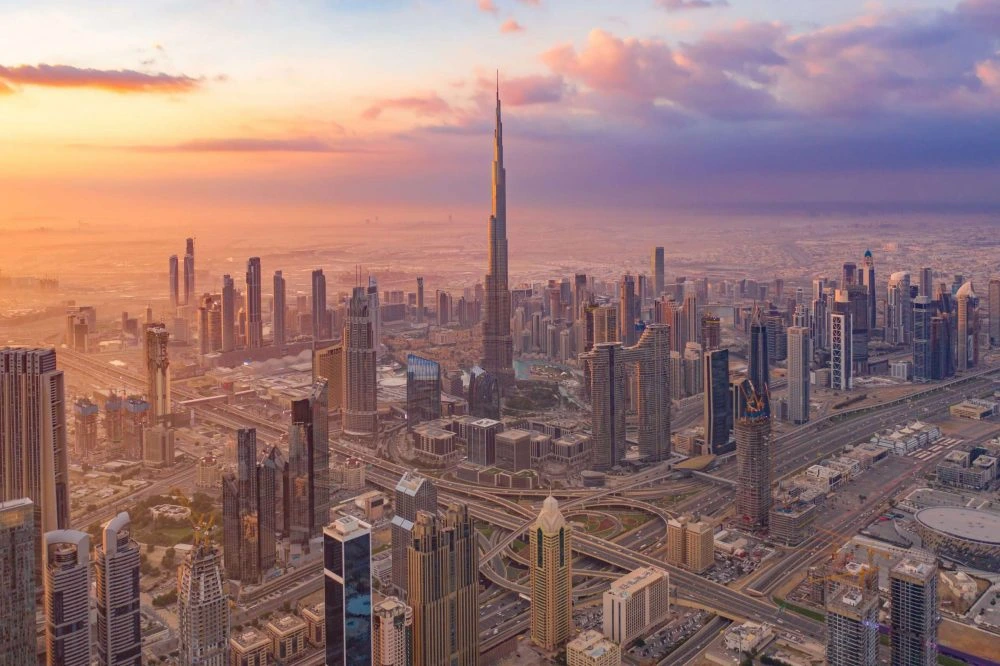
Dubai is widely recognized as a prime international trade hub for import-export businesses. With a strategic location, modern infrastructure, and a pro-business environment, the UAE is an ideal destination for entrepreneurs seeking to enter the global trade arena. This blog will guide you through the essential steps to set up your import-export business in Dubai, from securing the right licenses to navigating customs regulations. Why the Dubai is an Ideal Destination for Import-Export Business Dubai has positioned itself as a global leader in trade, with non-oil trade reaching a record AED 3.5 trillion (USD 952.93 billion) in 2024. The strategic location of Dubai offers seamless import-export opportunities between the East and West, enabling businesses to access diverse international markets. Additionally, Dubai’s modern infrastructure, including its advanced airports and seaports, ensures efficient logistics and supply chain management. Dubai’s entrepreneur-friendly policies make it an ideal place to launch and grow a business. The country offers a tax-friendly framework that encourages foreign investment, making it easier for global businesses to thrive. Moreover, there is a growing demand for goods and services from countries like India and the United States, opening new opportunities for trade. Current UAE Trade Landscape The UAE is a dynamic global trade center with a wide array of import-export activities. As a member of the World Trade Organization and a key trading partner to about 32 countries, UAE’s trading relationships contribute significantly to the economy. Types of Goods Being Exported and Imported Imports to the UAE include products such as: Gold: USD 57.1 billion Refined Petroleum: USD 19.5 billion Cars: USD 12.9 billion Broadcasting Equipment: USD 20.3 billion On the other hand, the UAE’s exports include: Crude Petroleum: USD 105 billion Refined Petroleum: USD 57.9 billion Gold: USD 32.8 billion Broadcasting Equipment: USD 17.7 billion This trade activity highlights the diverse nature of UAE’s import-export industry. UAE’s Trading Partners The UAE enjoys solid trade partnerships with global giants such as China, India, and the United States, boosting its position on the world stage. Initiatives such as the Comprehensive Economic Partnership Agreement (CEPA) with India and the Free Trade Agreement (FTA) with the US further bolster trade ties, promoting smoother cross-border transactions. Free Trade Agreements (FTAs) and Tax Conditions Dubai’s robust trade agreements open numerous opportunities for businesses. Notable FTAs include: India-UAE CEPA: This agreement boosts trade by eliminating tariffs on nearly all imports from India. United States-UAE TIFA: This agreement enhances trade liberalization, benefiting sectors like aerospace, defense, and technology. Regarding tax conditions, Dubai offers corporate tax exemptions for companies operating in Free Trade Zones, with some zones offering tax benefits for up to 50 years. The VAT rate is set at 5% but only applies to businesses generating revenue exceeding AED 375,000 (USD 102,000). Setting Up an Import-Export Company in Dubai Starting your import-export business in UAE involves several steps to ensure compliance with legal requirements and secure the necessary licenses. Step 1: Register Your Business Start by outlining your business activities, so you can apply for the right trade license. Then, pick a legal structure; like a Limited Liability Company (LLC) that best aligns with your goals and setup. After finalizing your business name and obtaining initial approval from the Department of Economic Development (DED), you can proceed to collect your trade license. Step 2: Obtain an Import-Export License To apply for an import-export license, you’ll need to submit several documents, including: Trade License and Memorandum of Association (MOA) Passport copy of the business owner Tenancy agreement for office space or warehouse Application fee for the import-export code Step 3: Choose an Office Space A physical office is required for most import-export businesses in the UAE. Consider locations near major ports and logistics hubs or within a Free Trade Zone for easy access to resources and infrastructure. Step 4: Obtain a Visa To operate in UAE, you’ll need a visa. Options include: UAE Residence Visa: For long-term living and working in Dubai Investor Visa: For those investing a minimum of AED 70,000 in the business Free Zone Visa: For businesses operating within Free Trade Zones Step 5: Navigate Customs and Compliance Understanding customs regulations is crucial for running an import-export business in UAE. All imported goods must be declared with UAE Customs to determine applicable duties and taxes. It’s vital to classify goods accurately according to Harmonized System (HS) codes to avoid penalties or delays. You may also want to consult with a customs broker or freight forwarder to help streamline the customs clearance process and handle all necessary documentation. UAE offers a wealth of opportunities for entrepreneurs looking to start an import-export business. With its prime location, world-class infrastructure, and supportive business policies, the UAE offers the perfect launchpad for companies looking to tap into global markets. By understanding the registration process, obtaining the proper licenses, and adhering to customs regulations, you can position your business for success in this thriving global trade hub. We can help you navigate the complexities of setting up your import-export business in Dubai. Contact us today to explore the best options for your business growth in the UAE!
Explore Business Potential in UAE’s Smart Tourism
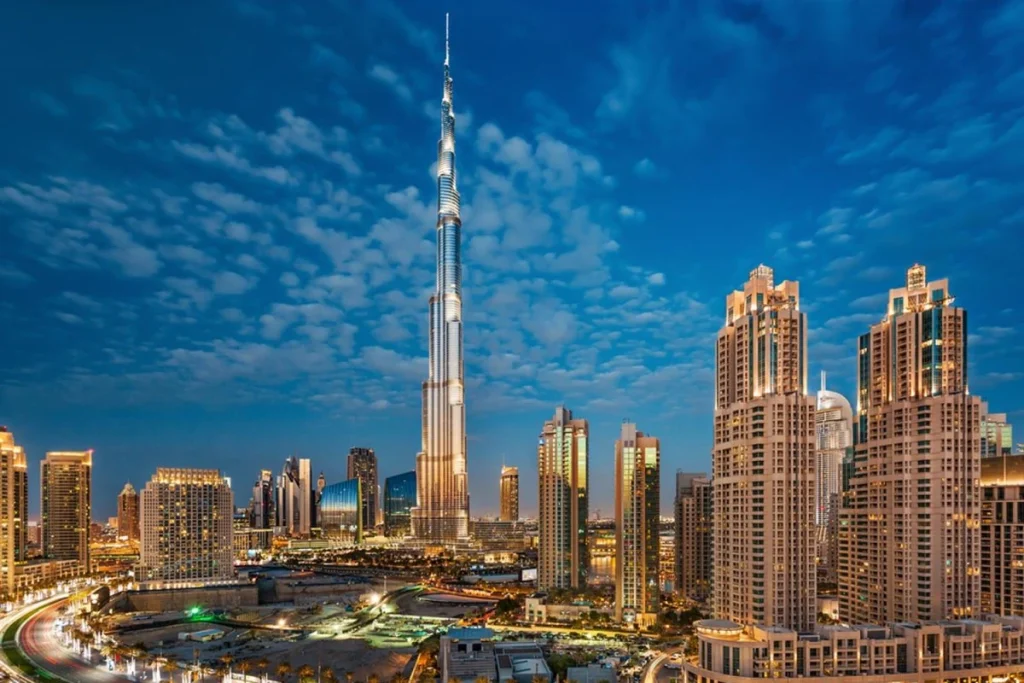
The UAE has rapidly evolved into a global leader in leveraging advanced technologies within the tourism and hospitality sectors. These industries are being reshaped by private sector innovation, supported by government-led initiatives, and are contributing significantly to the UAE’s economy. Technologies such as AI, AR, and VR are increasingly being integrated into prominent hotel chains and entertainment venues, enhancing the travel experience for tourists and cementing the UAE’s reputation as a top luxury destination. This blog will dive into how the UAE’s digitally advanced tourism sector is creating significant opportunities for global businesses and entrepreneurs. Digitalization of the UAE’s Tourism and Hospitality Sectors The UAE has embraced digital transformation in the tourism and hospitality sectors, creating a forward-thinking environment for business growth. A notable example of this digital push is the partnership between the UAE Ministry of Economy and the United Nations World Tourism Organization (UNWTO) during the 121st session of the UN Tourism Executive Council. The two organizations launched a digital platform designed to support the global transformation of tourism. The platform integrates a mobile app with an e-voting system and real-time documentation tools, which enhance communication and participation during international tourism events. Similarly, Dubai-based hotel chains such as the Jumeirah Group are taking proactive steps toward digitalization. To make things smoother for travelers, many companies are now offering digital gift experiences, built-in language translation tools, and touch-free check-in options. This boosts efficiency during guest arrivals and departures and enriches the overall guest experience. Additionally, W Dubai – The Palm is utilizing AR technology, allowing visitors to scan artworks and sculptures throughout the hotel with their smartphones for an immersive experience. Adding to the excitement, Dubai’s Department of Economy & Tourism organized its very first Dubai Wedding Symposium, highlighting how AI and VR can enhance the wedding experience. AI tools for personalized vows, digital portraits, and immersive VR post-wedding experiences were showcased. These AI driven tools are sure to attract high-net-worth clients seeking luxurious destination weddings in Dubai. These developments in event planning and hospitality sectors provide cutting-edge, personalized services that will transform the UAE’s tourism landscape. It will also boost its appeal to international tourists. Opportunities for Business Expansion in UAE’s Tourism Sector For global businesses looking to expand into the UAE market, the tourism sector offers a thriving opportunity. The ongoing digital transformation, particularly through AI-powered hotel operations and immersive VR experiences, presents a significant opportunity for innovation-driven companies. With Dubai welcoming 11.93 million international visitors in 2024, a 7.5% increase over the previous year, it is evident that the emirate is becoming an ideal travel destination for tourists worldwide. The UAE’s private sector plays a critical role in driving this digital revolution.
Start a Tourism Business in Dubai: A Complete Guide
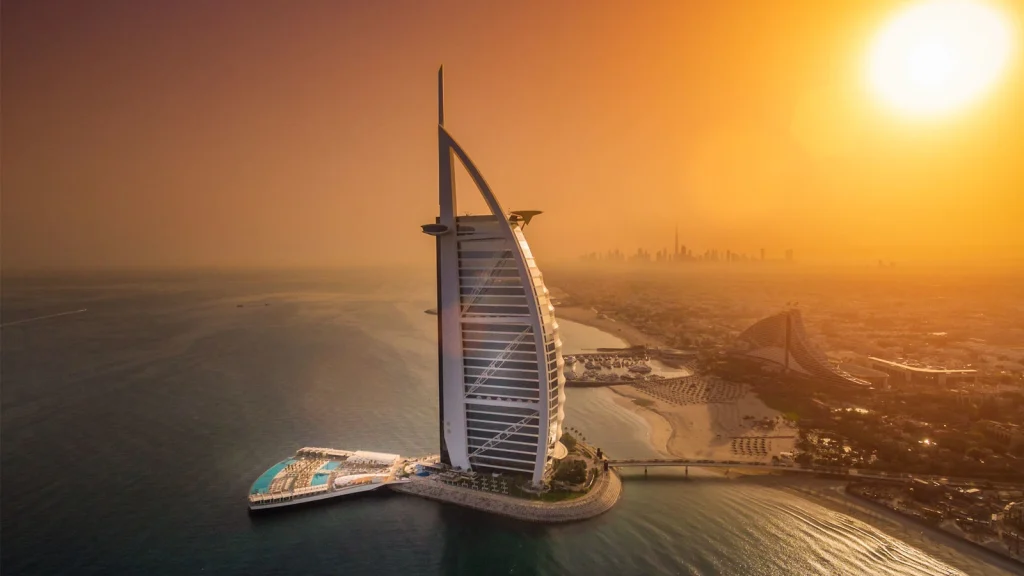
Dubai has rapidly established itself as one of the world’s leading tourist destinations. With millions of international visitors every year, the city offers a thriving environment for tourism businesses. If you’re an entrepreneur looking to tap into the booming tourism sector, starting a tourism business in Dubai could be a lucrative opportunity. This guide will provide you with key insights into how to establish your own tourism company in Dubai, from choosing the right location to obtaining licenses and approvals. Why Choose Dubai for Your Tourism Business? Dubai’s tourism industry has been growing at an impressive rate. In 2024, Dubai welcomed 18.72 million international overnight visitors, marking a 9% increase from the previous year. With the government aiming to attract 20 million visitors annually, the tourism sector presents huge business potential. Furthermore, Dubai’s strong infrastructure, tax benefits, and government support makes it an attractive destination for setting up a business. The UAE’s diverse population also means there’s a wide market for tourism-related services, creating opportunities for travel agencies, tour operators, and destination management companies. One of the biggest advantages of starting a tourism business in Dubai is its strong potential for profitability. The tourism industry here is thriving, offering numerous opportunities for growth and success. With consistent government support through programs like the Dubai Tourism Strategy 2031, the market is poised for continued success. Additionally, Dubai’s strategic location, world-class hotels, and continuous infrastructure development ensure it remains a top global destination.
Top Investment Opportunities in UAE Tourism – 2025
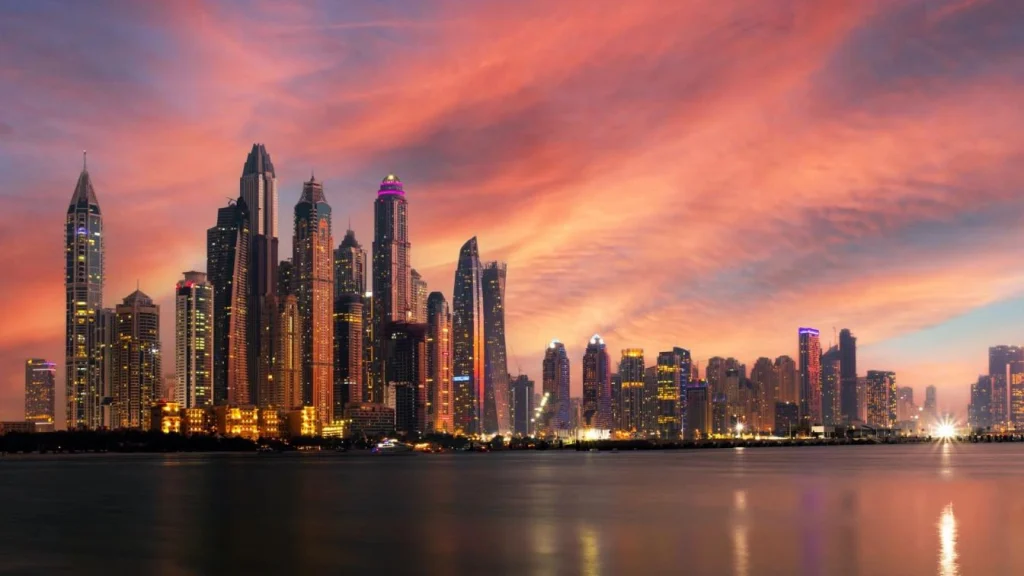
The UAE has become a global hub for tourism. In 2024 alone, the sector added a massive AED 220 billion to the country’s GDP. With tourism now accounting for 11.7% of the national economy, it’s clear just how big of a role it plays not only in driving growth but also in supporting the UAE’s push toward a more diverse and dynamic economic future. The tourism sector is not just about luxurious malls and architectural marvels; it’s a multifaceted industry with far-reaching benefits. The numbers are staggering. By the middle of 2024, the UAE had already rolled out the welcome mat for more than 30 million international visitors. Dubai alone saw a huge crowd, over 5.18 million guests, just in the first quarter! Iconic landmarks like the Burj Khalifa, Palm Jumeirah, and Shaikh Zayed Grand Mosque continue to attract large numbers of tourists. This increase in visitors helps the economy and supports over 809,000 jobs. This accounts for “one in every nine jobs” in the United Arab Emirate. Tourist spending has skyrocketed! In 2023 alone, international visitors boosted their spending by 40%, bringing the total to a whopping AED 175 billion. And it’s not just travelers from abroad domestic tourism is booming too, with locals spending over AED 55.5 billion in 2024. Together, these numbers reinforce the UAE’s standing as a major player on the world tourism stage.
Best Real Estate Investment Opportunities in UAE – 2025
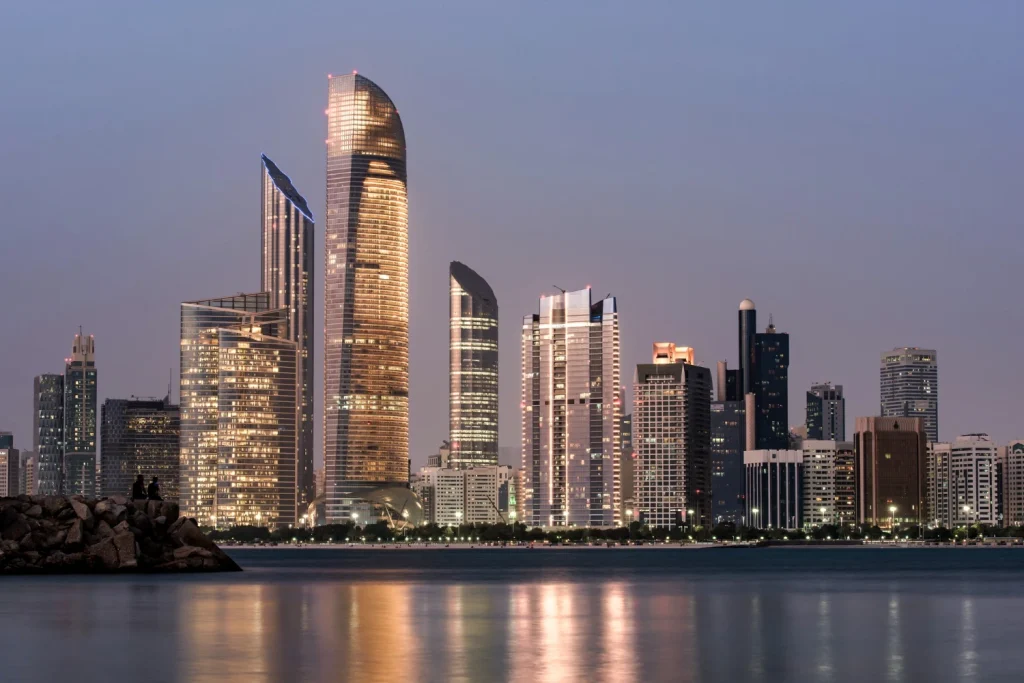
The United Arab Emirates (UAE) continues to solidify its status as a premier destination for real estate investment, with Dubai and Abu Dhabi leading the charge. As we navigate through 2025, these cities present a wealth of opportunities for investors seeking to diversify their portfolios and capitalize on the region’s dynamic growth. Why Invest in UAE Real Estate in 2025? Several compelling factors make the UAE’s real estate market particularly attractive this year: Expo 2020’s Influence: The success of Expo 2020 played a key role in elevating Dubai’s infrastructure and global standing, sparking a surge in interest across the real estate market. Golden Visa Program: The UAE’s introduction of long-term visas for property investors has made the market more accessible to international buyers, fostering a stable investment environment. Sustainability Initiatives: A growing emphasis on eco-friendly developments aligns with global trends, attracting environmentally conscious investors. Economic Diversification: Both cities are expanding beyond oil-centric economies, focusing on sectors like technology and tourism, which bolsters real estate demand. Tax-Free Income: The absence of property taxes and the potential for high rental yields enhance the UAE’s appeal to investors.